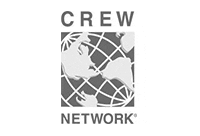For years, the narrative has been that leaders must be unshakeable, always confident, and in control. But when you study the most effective leaders, you’ll quickly see that they aren’t the ones who hide their imperfections—they’re the ones who embrace them.
Vulnerability is often viewed as a “soft” skill, something that doesn’t belong in the boardroom or the C-suite. But in my experience, vulnerability is one of the most powerful tools a leader can have. It builds trust, fosters authentic connections, and, ultimately, drives the kind of success that goes beyond short-term wins. True leadership isn’t about pretending to be perfect—it’s about being human.
The Strength of Vulnerability
When I started as a performer, I had to learn early on that vulnerability is not about weakness, but about openness. Whether on stage or in a leadership role, when you show your true self—imperfections and all—you create a space for others to do the same. As a leader, being vulnerable doesn’t mean revealing every personal detail, but it does mean being open about your struggles, acknowledging your mistakes, and showing that you are willing to grow.
The strength of vulnerability lies in its authenticity. Leaders who show up as their true selves, rather than hiding behind a facade, create stronger, more genuine relationships with their teams. This kind of leadership fosters an environment where team members feel seen, heard, and valued—not just for their successes, but for their humanity.
When we embrace vulnerability, we invite others to be authentic with us. This builds a culture where people can speak openly about their challenges and ideas without fear of judgment. It’s this kind of environment that drives trust, and trust is the foundation of any high-performing team.
"Emotional intelligence is not just the ability to understand and express emotions—it’s the ability to lead with empathy and resilience."
Peter Salovey
Vulnerability vs. Weakness
There’s a dangerous myth in leadership circles that vulnerability equates to weakness. The idea is that a leader who admits to challenges, failures, or uncertainties is not “strong” enough to lead. But here’s the truth: vulnerability is actually a strength—a hallmark of courageous leadership.
Admitting when you don’t know something, or when you’ve made a mistake, shows that you have the self-awareness to recognize your limitations. It also demonstrates humility, which is a quality that inspires respect and loyalty in your team. When leaders are willing to admit their flaws, they set the tone for the whole team to be more open, transparent, and willing to learn from their mistakes.
True vulnerability in leadership isn’t about weakness; it’s about the strength it takes to be open and honest in the face of adversity. It’s about creating an atmosphere where people can bring their whole selves to work—flaws, fears, and all—without fear of being judged.
The Role of Vulnerability in Building Trust
In my journey, one of the greatest lessons I’ve learned is that trust is not built by projecting strength and perfection. It’s built by showing up as a real person. When leaders are vulnerable, they allow their teams to see that they’re human too. This creates a human connection that goes beyond the typical professional relationship.
Think about it: Have you ever felt more connected to someone who was always perfect, or to someone who acknowledged their imperfections and showed genuine emotion? I’ve found that leaders who embrace vulnerability are more trusted by their teams. Why? Because people feel like they can relate to them.
Vulnerability shows that you’re not afraid to take risks, admit mistakes, and learn from them. It sets the stage for open communication, and when trust is established, it unlocks collaboration and drives higher performance. Trust isn’t given because a leader demands it; it’s earned when a leader shows they’re willing to be real.
Vulnerability and Innovation
One of the biggest benefits of embracing vulnerability is how it encourages innovation. When leaders model vulnerability, they create an environment where their team members feel comfortable sharing new ideas, experimenting, and failing without fear of repercussions. Innovation thrives in environments of trust and openness, and vulnerability is a key factor in creating that environment.
I’ve seen this time and time again—when leaders are open about their challenges and limitations, it encourages others to step up, share their ideas, and contribute without hesitation. It’s in these moments of vulnerability that the best ideas are often born. When we take risks, make mistakes, and show up as we truly are, we open the door to creativity and collaboration.
Practical Steps to Embrace Vulnerability as a Leader
If you’re ready to embrace vulnerability and unlock its power in your leadership, here are some practical ways to do it:
- Acknowledge your mistakes openly: The next time you make a mistake, own it. Share what you’ve learned and how you plan to improve. This sets a powerful example for your team.
- Share your challenges: You don’t have to be perfect, and neither does your team. Share your struggles and the lessons you’re learning. This fosters a culture of continuous learning and improvement.
- Encourage transparency: Create a safe space where your team feels comfortable being open about their own challenges, mistakes, and ideas. When you lead with vulnerability, others will follow suit.
Be open to feedback: Vulnerability isn’t just about admitting your mistakes; it’s about being open to the feedback that can help you improve. Listen actively, reflect on what you hear, and use it to grow.
Conclusion
Vulnerability is not a weakness in leadership—it’s a powerful tool for building trust, fostering innovation, and creating a culture of authenticity. When we lead with vulnerability, we show our teams that it’s okay to be imperfect, to make mistakes, and to learn from them. This is the kind of leadership that drives lasting success and deeper connections.
If you’re ready to embrace vulnerability in your leadership style and unlock your full potential, I invite you to book a call with me. Together, we can explore how vulnerability can strengthen your leadership and help you connect with your team in more meaningful ways. Let’s work together to lead from our Best Self.





























